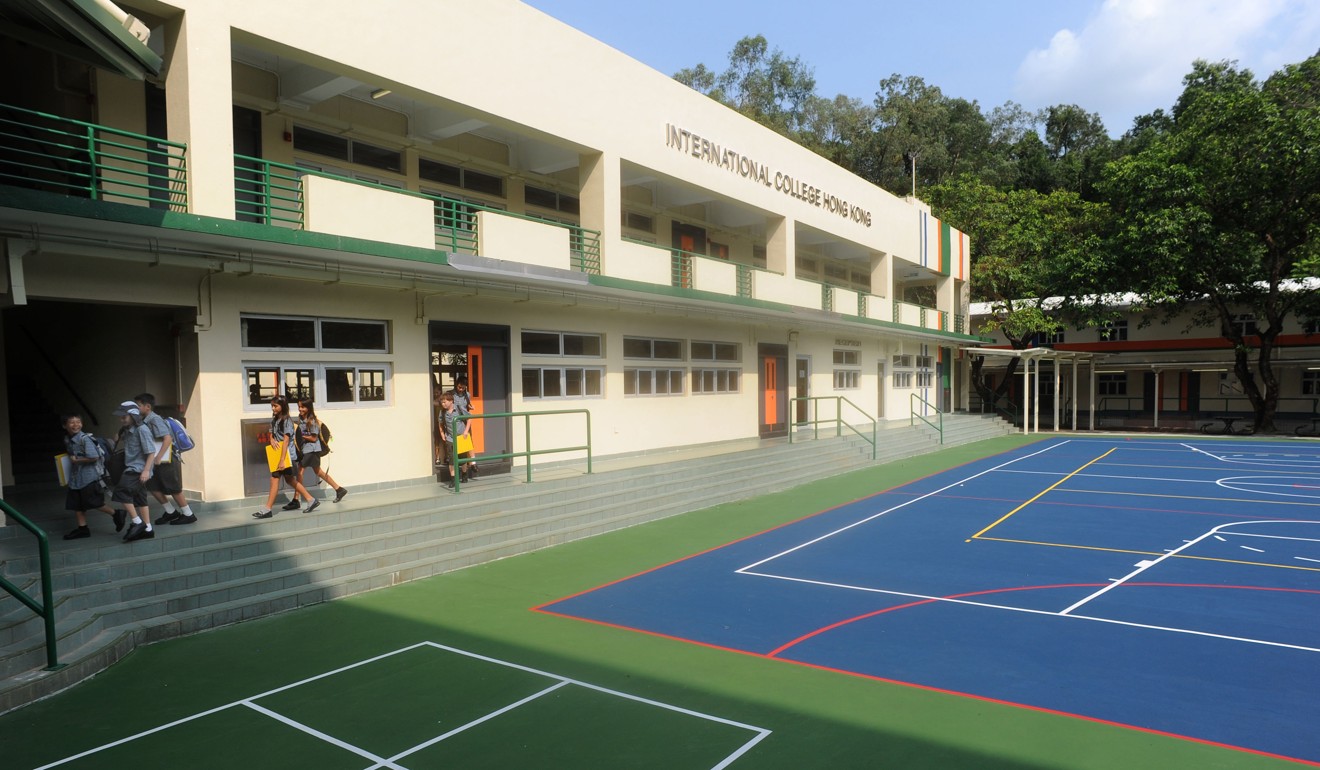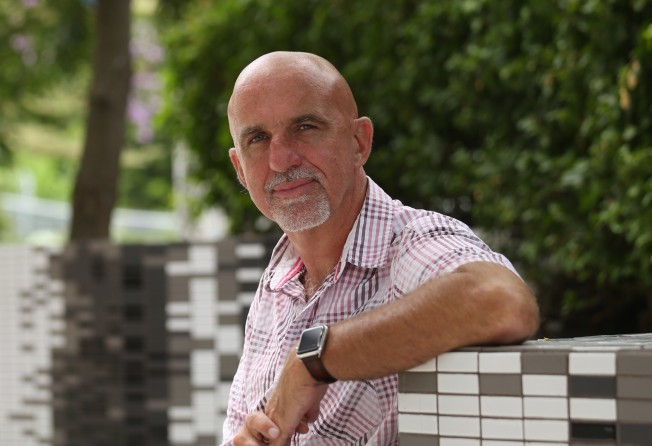
The former colonial policeman-turned-teacher on a mission to revamp Hong Kong education
Briton Toby Newton’s experience in the force inspired him to become an educator, bringing a different style of learning to a remote school in the New Territories

The relationship between Hong Kong’s police officers and the public has in recent months been fraught with tension in a city divided by social and political conflict, but 55-year-old Briton Toby Newton, a former policeman in colonial Hong Kong, says it’s not as bad as it seems.
“To a lot of communities in Britain, police are the enemy,” says Newton, who now runs International College Hong Kong (ICHK), an international secondary school in the New Territories. “I’ve never had that feeling in Hong Kong.”
He says even now, local residents have a less adversarial relationship with police compared with his native country, and this has to do with the affinity between Hongkongers and public officers.

“Everyone knows someone who’s a police officer. Some even have someone in the family who’s in the force.”
Arriving in the city in 1987, and joining the force after a BBC TV show back home sparked his interest, it was police work that led him to fall in love with Hong Kong. Those early years on the beat also gave him an insight into society’s ills and would later lead him to his current calling: education.
“I love this city,” he says. “I really do. I wouldn’t want to live anywhere else. But I want to make a change.”
I love this city. I wouldn’t want to live anywhere else. But I want to make a change
As an inspector, Newton noticed something about most of the calls he had to answer and the people he had to arrest.
“I would say it was reoffending. You realise that it tends to be the same people you are coming up against, again and again.
“The problem they have is that they are uneducated, untrained, unskilled – and therefore unable to make their way legitimately in the economy. Somehow, you have to change their life chances. I really wanted to serve the community. And looking around, it seemed to me that these laws and rules hadn’t delivered us into a particularly good place.”
Newton returned to Britain and trained for his teacher’s qualifications at King’s College London. He then cut his teeth at Acton High School, a secondary school in the London Borough of Ealing.
Acton was at the time regarded as a “sink school”, Newton says. Its students were a mix of privileged, middle-class children, but also many from disadvantaged backgrounds, along with refugees and recent immigrants.
It was consistently the worst performing school in the system.
So instead of teaching straight from the curriculum, Newton tried a different approach. “We had some really difficult kids,” he recalls. “Trying to win them round meant trying to prove to them that education could serve them.
“I worked slowly over time to convince students I took them seriously, that I thought they had real potential ... and that they were capable of achieving in ways they had thought were not available to them,” he said.
Wanting to take things further, he studied for a master’s degree in social anthropology at the University of London’s School of Oriental & African Studies, and then another master’s degree in cultural studies research at London Consortium, a graduate school under Birkbeck, University of London, before returning to Acton in 2002.
He would later return to Hong Kong to “try out some of the more progressive, more interesting ideas”.
In 2008, Newton took up a role as vice-principal of South Island School. But even in that international setting, he found that most teachers were resistant to try anything innovative.
In 2013, he joined ICHK as deputy head. Founded in 2009, the school, with a current cohort of under 300 students, is nestled in the northern New Territories, near the border town of Sha Tau Kok. It proved the ideal setting for Newton’s ambitions.
Rather than producing batches of anxious grade-chasers, something he thinks most local secondary schools see as their primary function, Newton says ICHK focuses on “interpersonal skills” and teamwork. Fees are about HK$154,100 (US$19,600) to HK$171,200 annually.
While ICHK teaches the same subjects that can be found in other local international secondary schools – such as English, maths and the sciences – it also offers classes that cannot be found elsewhere.
Many parents of our students value getting their children out of the congested environment to green, pleasant and fresh surroundings
Some of these go by esoteric names such as “human technologies”, which promotes social skills and cooperation among students, and “big history”, an online course that covers 14 billion years of human history, which was once described by Microsoft founder Bill Gates as his favourite online class.
This approach, Newton claims, makes students “smarter, happier, more confident and more thoughtful people.” He says these attributes prepare them for society in the future. He became the school’s head in 2016.
“We are in one of the more rural areas of Hong Kong, but we work that to our advantage – we suffer very little traffic congestion ... and with the Lung Shan Tunnel opening in November, we will be only about a 25-minute bus ride from northern Kowloon.
“Many parents of our students value getting their children out of the congested environment to green, pleasant and fresh surroundings.”
On his school’s teaching philosophy, Newton says: “The message we’re getting from employers is: ‘how are schools going to let us know about the sort of person we’re getting?’.” Grades, he points out, tell an employer little.
“What’s this person like under a deadline? Is this person agile? Those are the things that are going to make you someone others want to work with,” he says.
As for those sceptical about his teaching style – or his odd career path – Newton, paraphrasing a quote from Scottish psychiatrist R D Laing, says: “Think of Hong Kong secondary schools as all these planes flying in formation. What if the only one that’s out of formation is the only one that’s on course?”